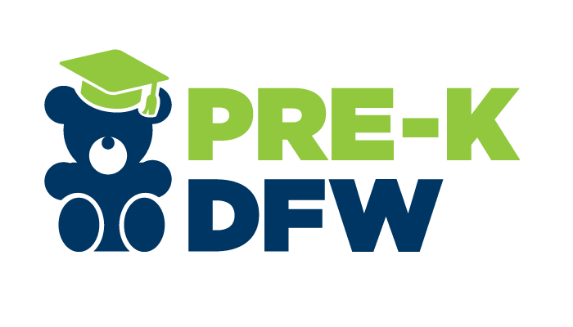Pre-K Registration Frequently Asked Questions
How do I know if my child qualifies for free public Pre-Kindergarten education?
Your child is eligible for free public Pre-Kindergarten class if s/he is 3*- or 4-years-old by September 1, 2023 and meets any of the following qualification:
- Unable to speak and comprehend the English language
- Economically disadvantaged (eligible for free or reduced-price lunch programs-up to 185% of Federal Poverty Line)
- Homeless
- Child of active duty member of U.S. Armed Forces, including state military forces or reserves
- Child of a member of the U.S. Armed Forces, including state military forces or reserves, who was injured or killed while serving on active duty
- Is or has ever been in foster care
* Only some districts provide programs for 3-year-olds
How can I prove my child is financially eligible for free Pre-K?
If you receive Supplemental Nutrition Assistance Program (SNAP) or Temporary Assistance for Needy Families (TANF), your household is eligible to receive National School Lunch Program (NSLP) assistance because your income falls below 185% of the Federal Poverty Line. Therefore, your child qualifies as for free Pre-K education. You may use your SNAP or TANF cards to document eligibility. Eligibility for the 2019-20 School Year was as follows:
| Household Size | Annually | Monthly | Twice Per Month | Every Two Weeks | Weekly |
| 1 | 23,107 | 1,926 | 963 | 889 | 445 |
| 2 | 31,284 | 2,607 | 1,304 | 1,204 | 602 |
| 3 | 39,461 | 3,289 | 1,645 | 1,518 | 759 |
| 4 | 47,638 | 3,970 | 1,985 | 1,833 | 917 |
| 5 | 55,815 | 4,652 | 2,326 | 2,147 | 1,074 |
| 6 | 63,992 | 5,333 | 2,667 | 2,462 | 1,231 |
| 7 | 72,169 | 6,015 | 3,008 | 2,776 | 1,388 |
| 8 | 80,346 | 6,696 | 3,348 | 3,091 | 1,546 |
| For each additional family member: | 8,177 | 682 | 341 | 315 | 158 |
My child will turn five (5) years old soon after September 1, but is smart and mature. Can I send them to kindergarten instead of Pre-K this year so that they don’t need to wait another year?
A child must be at least five (5) years old on September 1 of the school year. A student younger than five years old may attend kindergarten if the district has a policy for admitting students younger than five years of age.
My child does not meet these eligibility requirements. What are my options?
If your child is not eligible, there are numerous options available. When searching for quality, non-district programs, there are many factors to consider and many types of care available. To learn more about what to consider when choosing a center, use the Little Texans parent guide (http://littletexans.org/ChoosingCare.aspx) as a resource.
After determining the type of early learning program that is right for your family, find DFW-area providers through the following links:
- Tuition based Pre-K is available in Cedar Hill ISD, Dallas ISD, DeSoto ISD, Grand Prairie ISD, Arlington ISD, Duncanville ISD, Plano ISD, and Crowley ISD
- Head Start and Early Head Start (www.hsgd.org)
- Search for quality, accredited childcare centers near you by visiting https://frontlinechildcare.texas.gov
What do children learn in Pre-K
Districts follow the State of Texas PK Curriculum Guidelines which include oral language development, early literacy, mathematics, science, social studies, fine arts, personal, social and physical development.
Are the opportunities for parenting and educational support at home?
Home visiting services, which match families with trained home visitors who come to the home or a convenient location, can be another useful resource. A home visitor is an experienced person who can answer questions about pregnancy or raising children and can help families find services that help take care of a parent or child is needs. To locate these programs, visit (http://www.childcaregroup.org/Parents/index.html).
I want my child to attend Pre-K near my job, can I register him/her at a school near my job?
This depends on your child’s school district. Check with your district to understand their specific enrollment.
What are childcare partnership sites?
A childcare partnership site is a quality childcare facility that has partnered with a local school district to provide free pre-K. Teachers are certified and programs meet the same quality standards as an on-campus program, students are dually-enrolled with the local school district, and parents have the option for a full-workday of education and care for their children based on the center’s hours.
Do school districts offer programs for children with disabilities?
There is a different enrollment process for students who qualify for the Preschool Program for Children with Disabilities (PPCD). To find your district’s enrollment process search “Special Education” and your district’s name in your preferred search engine (Google, Bing, etc..).
Will my child need to wear uniforms in Pre-K?
Each district has different requirements for uniforms. Contact your local campus to learn more.
Does my child need to be in school every day?
It is very important that your child is in school every day. Children who attend pre-k more are more likely to be ready for kindergarten and are able to build on the skills that they’ve learned the previous day. Pre-K is not just babysitting, your child is actually learning! Once enrolled, students are required to adhere to the State Compulsory Attendance Law. The same truancy laws apply to prekindergarten as do to all other age groups.
How involved as a parent should I be in my child’s first year in Pre-K?
As a parent, you should be very involved in your child’s first year of Pre-K. It is recommended to constantly check-in with their teachers and be involved throughout the year through different school events, curriculum, or outside of school resources and activities. To learn more, visit your child’s school district web page.
